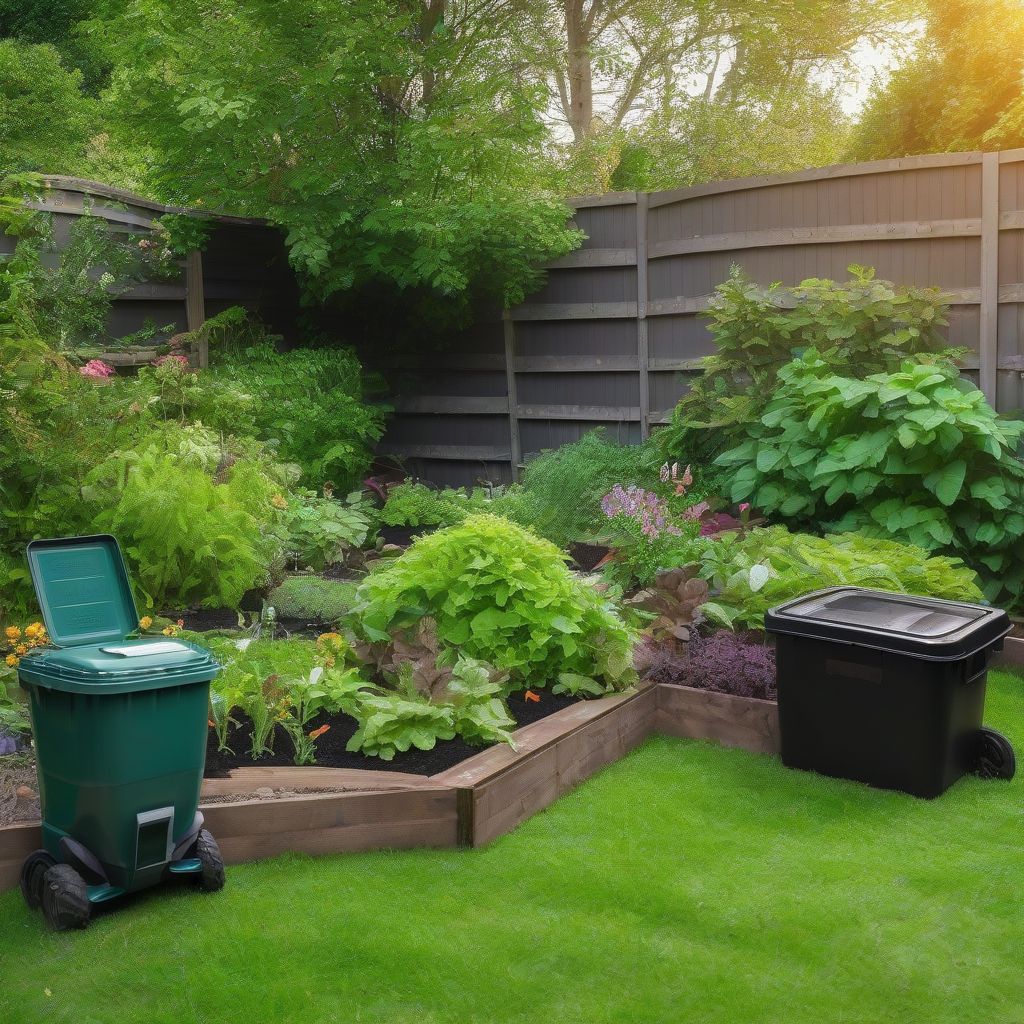Have you ever dreamt of a garden bursting with vibrant blooms and overflowing with plump, juicy vegetables? Imagine sinking your hands into rich, fertile soil that seems to breathe life into every seed you sow. Achieving this gardening dream isn’t about magic potions or secret handshakes with Mother Nature – it’s about harnessing the power of compost!
Compost, that humble mix of kitchen scraps and yard waste, is actually a gardener’s secret weapon. It’s the lifeblood of healthy soil, providing essential nutrients, improving soil structure, and fostering a thriving ecosystem for your plants to flourish.
Why is Compost the Key to Successful Planting?
Compost isn’t just “decayed stuff” – it’s a powerhouse of plant-boosting goodness! Here’s why it deserves a gold medal in the gardening Olympics:
1. A Nutrient Smorgasbord for Hungry Plants
Just like us, plants need a balanced diet to thrive. Compost delivers a slow and steady release of essential nutrients like nitrogen, phosphorus, and potassium, feeding your plants over time and reducing the need for synthetic fertilizers. Think of it as a gourmet buffet for your garden, ensuring healthy growth and bountiful harvests.
2. Building a Strong Foundation: Improved Soil Structure
Whether you’re battling clay soil that’s tough as nails or sandy soil that drains faster than you can water it, compost swoops in to save the day. It improves soil structure, helping clay soils drain better and sandy soils retain moisture. This creates a happy medium where plant roots can spread their wings and access the water and nutrients they need.
3. Water, Water Everywhere (and Not a Drop to Waste)
Compost acts like a sponge, soaking up excess water during downpours and releasing it gradually to thirsty plants during dry spells. This means less time spent watering and less stress for your plants, especially during those scorching summer months.
4. A Party for Beneficial Microbes
Don’t let the word “microbes” scare you – these microscopic helpers are the life of the soil party! Compost is teeming with beneficial bacteria, fungi, and other microorganisms that break down organic matter, release nutrients, and fight off plant diseases. It’s like building a strong immune system for your garden.
 Compost Pile in Garden
Compost Pile in Garden
How to Use Compost Like a Pro
Ready to unleash the power of compost in your own garden? Here’s how to use it effectively:
1. Spreading the Love: Topdressing
Add a 1-2 inch layer of finished compost to your garden beds in the spring or fall. This “topdressing” method gradually incorporates the compost into the soil, feeding plants and improving soil structure over time.
2. The Potting Mix Powerhouse
Give your potted plants a nutritional boost by mixing compost into your potting mix. Aim for a ratio of 1 part compost to 2 parts potting soil. Your container plants will thank you with lush foliage and vibrant blooms!
3. Creating “Black Gold” for Seed Starting
Seedlings are delicate little things, and compost gives them a gentle but powerful head start. Use a seed-starting mix that contains compost to provide essential nutrients and promote strong root development.
Compost Myths Debunked
Despite its proven benefits, there are still some common misconceptions surrounding compost. Let’s set the record straight:
Myth #1: Composting is Complicated and Smelly
Reality: Composting can be as simple or complex as you want to make it. Basic backyard composting is surprisingly easy, and with a little know-how, you can avoid any unpleasant odors.
Myth #2: I Don’t Have Enough Space for Composting
Reality: You don’t need acres of land to compost! Even small balconies and patios can accommodate compact compost bins or worm composting systems.
Myth #3: Compost Will Attract Pests
Reality: Properly maintained compost piles rarely attract pests. In fact, the beneficial organisms in compost actually help deter many common garden pests.
Compost: A Gift That Keeps on Giving
Incorporating compost into your gardening routine isn’t just about growing healthier plants; it’s about embracing a sustainable and eco-friendly approach to gardening. By composting kitchen scraps and yard waste, you’re reducing landfill waste, conserving resources, and giving back to the environment.
So, whether you’re a seasoned gardener or just starting out, make compost your new gardening mantra. It’s a simple yet powerful way to unlock the full potential of your garden, one shovelful of “black gold” at a time.
Now, tell me about your gardening journey! What are your biggest challenges, and have you tried composting before? Share your experiences in the comments below – I’d love to hear from you! And be sure to check out our article on The Role of Organic Fertilizers in Garden Health for more tips on nourishing your garden naturally.
[amazon bestseller=”compost bin”]
